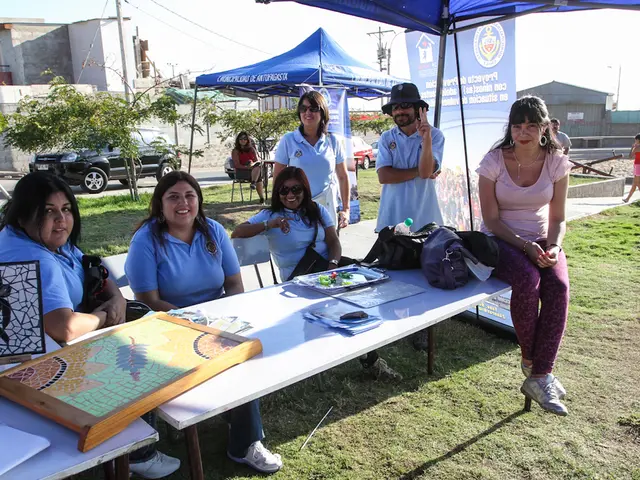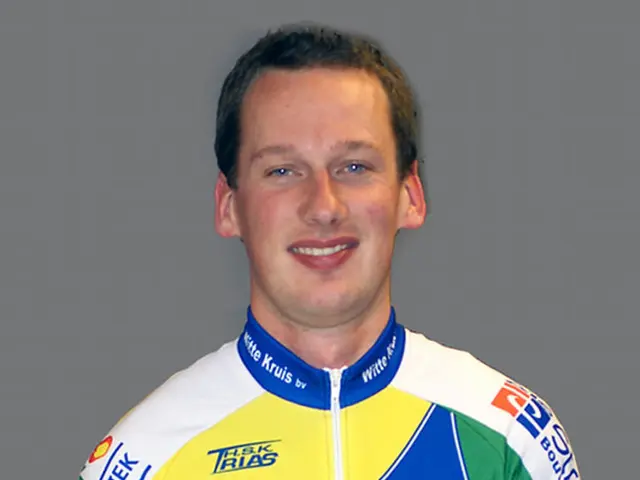Hessen aims to advance the State Gaming Agreement: Minister-President offers backing for the gaming sector
In the heart of Germany, the state of Hesse is making waves in the gambling industry, pushing for regulatory changes to address the challenges faced by the sector. The current State Treaty on Gambling (GlüStV 2021), which came into force nationwide in July 2021, has been met with criticism, particularly for its perceived favouritism towards state-run casinos and German machine manufacturers, and for its stringent betting restrictions.
Hesse Interior Minister, recognising these shortcomings, has admitted that the State Treaty has fallen short, reflecting broader legal and regulatory challenges in Germany's gambling sector. The treaty, designed to regulate online gambling and enhance player protection, oversight, and security, includes a centralized player database system (OASIS) to track gaming activities across states. However, concerns persist about its effectiveness in curbing unlicensed (black market) operators, which remain a significant concern.
The black market, a persistent issue, is addressed through a whitelist managed by the Joint Gambling Authority of the States (GGL), listing all authorized operators with official licenses. Yet, unauthorized operators continue to pose a challenge. To combat this, Hesse is advocating for a more balanced regulatory environment that can reduce black market activity and foster a legitimate online casino market under clearer, less restrictive conditions.
Industry groups like the German Lottery Association (DLV) have voiced their support for regulatory reform, emphasizing the need to modernize the framework to better control the black market and create a viable legal online casino market that can accommodate different player needs. Hesse, in response, is working on its own online casino, indicating a collaboration between politics and the industry to improve the legal gambling offer in the federal state.
The Hessian Minister President, Boris Rhein (CDU), has announced his state's intent to further develop the State Treaty on Gambling. He advocates for making the Hessian gambling market more attractive to providers and players to combat the black market. The future plans likely include adapting the regulatory regime to better integrate online casinos with fewer restrictions on stakes and better market access, while simultaneously combating illegal platforms more effectively.
The State Treaty on Gambling will undergo an evaluation by the end of 2026, conducted by the Joint Gambling Authority of the States (GGL). Until then, Hesse continues to work towards its goal of creating a more balanced and effective regulatory environment for the gambling industry.
Notable figures in the industry, such as Michael Wollenhaupt, HMV chairman, and Georg Stecker, DAW board spokesman, have expressed their support for Hesse's approach, praising the focus on youth and player protection. A study by the University of Leipzig revealed that illegal gambling in Germany is more widespread than initially estimated by the GGL, underscoring the urgency for regulatory reform.
On 14.05.2024, the Parliamentary Evening took place in Wiesbaden, initiated by the Roof Association Die Deutsche Automatenwirtschaft (DAW) and the Hesse Coin-Operated Machine Association (HMV). The event marked a significant step in the ongoing dialogue between politics and the industry, aiming to improve the legal gambling offer in Hesse.
As of mid-2025, the detailed legislative and regulatory updates are ongoing, with Hesse planning to further develop the State Treaty on Gambling independently if other federal states do not see the need for changes. The GGL has promised more financial resources for the promotion of studies related to the evaluation of the State Treaty on Gambling, indicating a commitment to evidence-based policy-making.
In summary, Hesse acknowledges the shortcomings of the current Gambling Treaty, is actively advocating for regulatory reforms, and supports a more balanced regulatory environment that can reduce black market activity and foster a legitimate online casino market under clearer, less restrictive conditions. The detailed legislative and regulatory updates are ongoing as of mid-2025.
What are the proposed changes in Hesse's regulatory environment for the gambling industry, as highlighted by the Hessian Minister President, Boris Rhein? They include making the Hessian gambling market more attractive to providers and players, adapting the regulatory regime to better integrate online casinos with fewer restrictions on stakes, improving market access, and combating illegal platforms more effectively.
In the ongoing dialogue between Hesse and industry figures such as Michael Wollenhaupt and Georg Stecker, what is the main focus? They praise the focus on youth and player protection, support Hesse's approach, and express the urgency for regulatory reform to combat the widespread issue of illegal gambling in Germany, as revealed by a study by the University of Leipzig.




